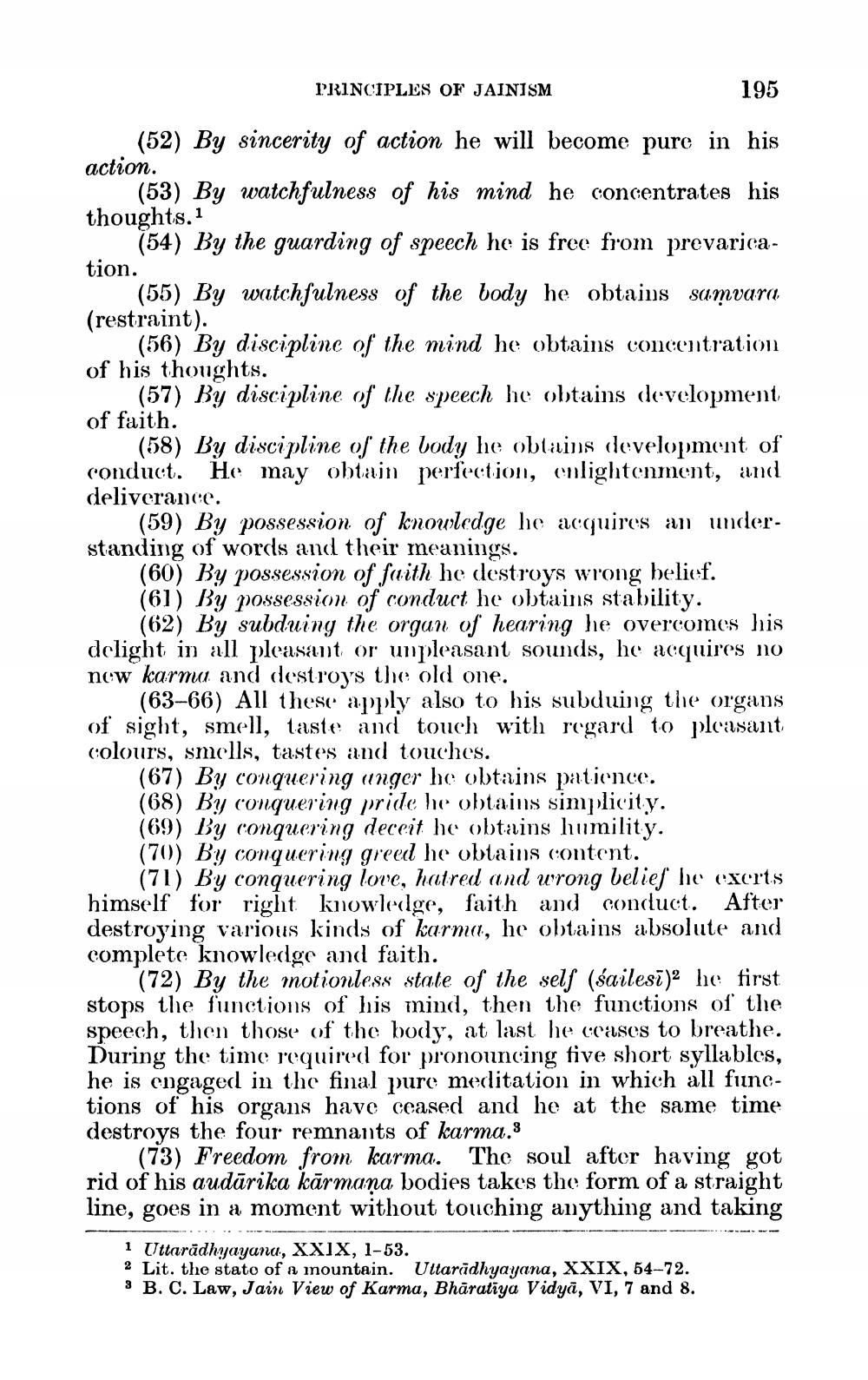________________
195
(52) By sincerity of action he will become pure in his action.
(53) By watchfulness of his mind he concentrates his thoughts.1
(54) By the guarding of speech he is free from prevarica
tion.
PRINCIPLES OF JAINISM
(55) By watchfulness of the body he obtains samvara (restraint).
(56) By discipline of the mind he obtains concentration of his thoughts.
(57) By discipline of the speech he obtains development of faith.
(58) By discipline of the body he obtains development of conduct. He may obtain perfection, enlightenment, and deliverance.
(59) By possession of knowledge he acquires an understanding of words and their meanings.
(60) By possession of faith he destroys wrong belief. (61) By possession of conduct he obtains stability. (62) By subduing the organ of hearing he overcomes his delight in all pleasant or unpleasant sounds, he acquires no new karma and destroys the old one.
(63-66) All these apply also to his subduing the organs of sight, smell, taste and touch with regard to pleasant colours, smells, tastes and touches.
(67) By conquering anger he obtains patience. (68) By conquering pride he obtains simplicity. (69) By conquering deceit he obtains humility. (70) By conquering greed he obtains content.
(71) By conquering love, hatred and wrong belief he exerts himself for right knowledge, faith and conduct. After destroying various kinds of karma, he obtains absolute and complete knowledge and faith.
(72) By the motionless state of the self (sailesi)2 he first stops the functions of his mind, then the functions of the speech, then those of the body, at last he ceases to breathe. During the time required for pronouncing five short syllables, he is engaged in the final pure meditation in which all functions of his organs have ceased and he at the same time destroys the four remnants of karma.3
(73) Freedom from karma. The soul after having got rid of his audārika kārmaṇa bodies takes the form of a straight line, goes in a moment without touching anything and taking
1 Uttaradhyayana, XXIX, 1-53.
2 Lit. the state of a mountain. Uttaradhyayana, XXIX, 54-72.
3 B. C. Law, Jain View of Karma, Bharatiya Vidya, VI, 7 and 8.




